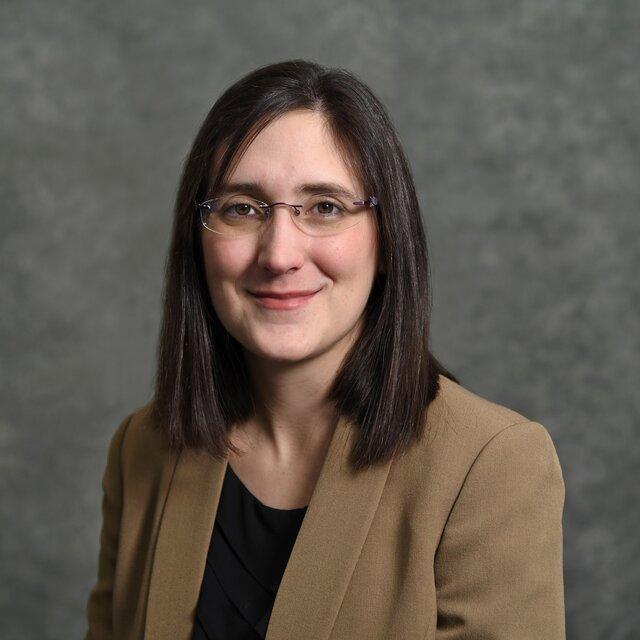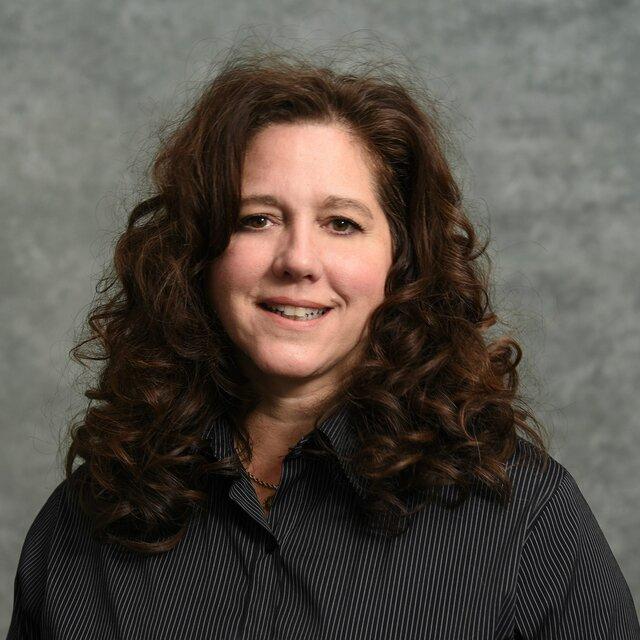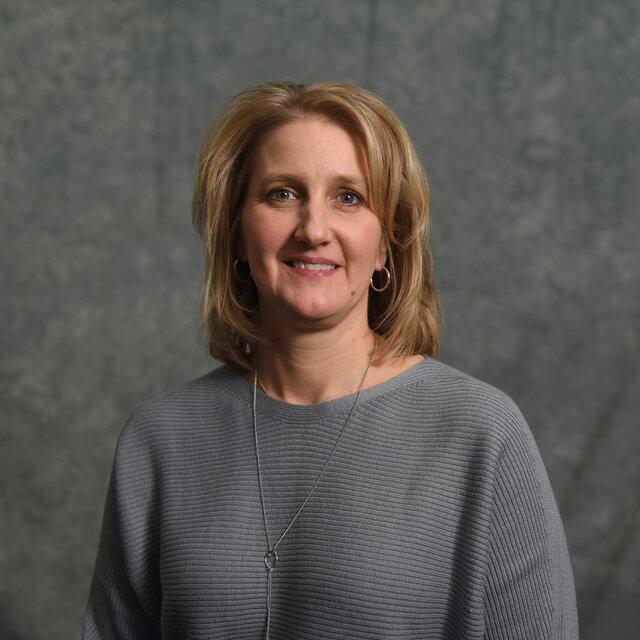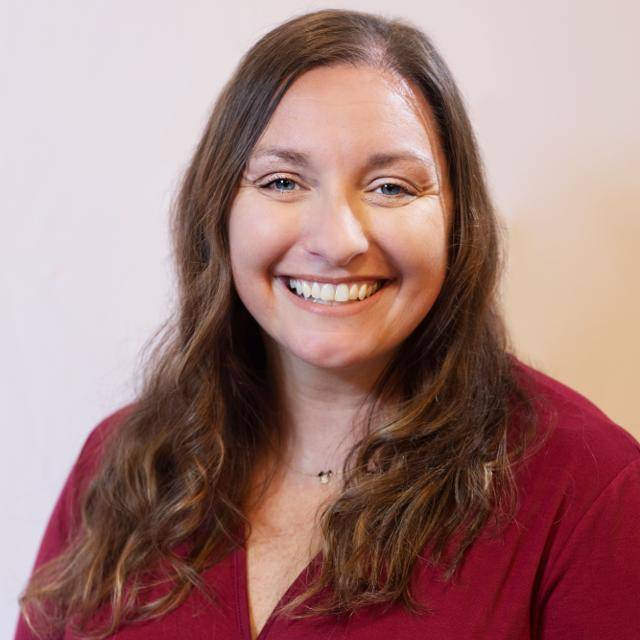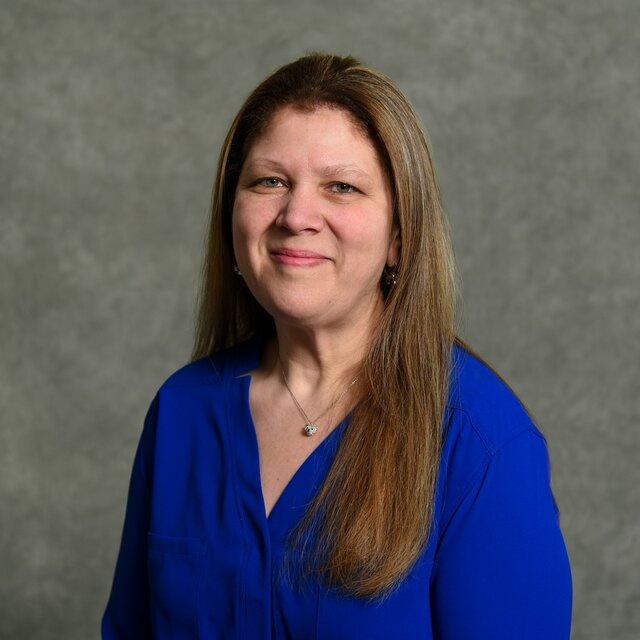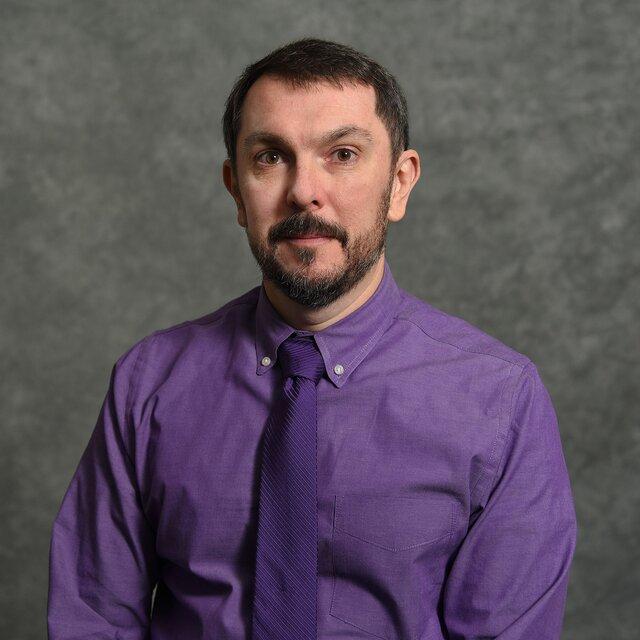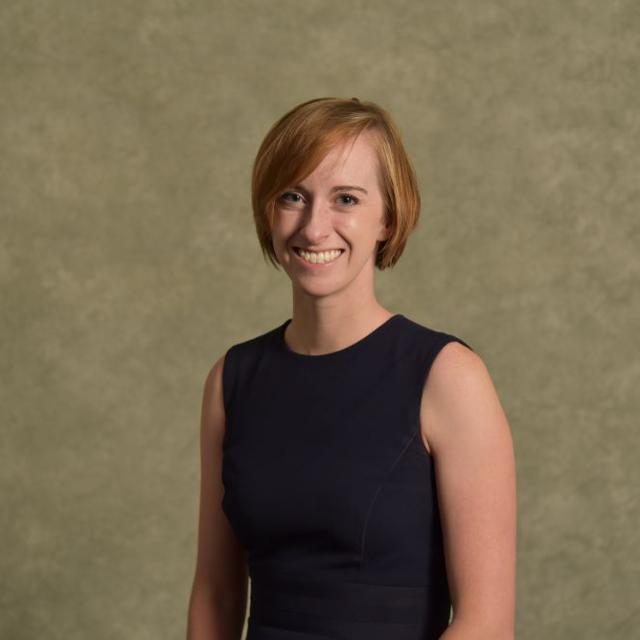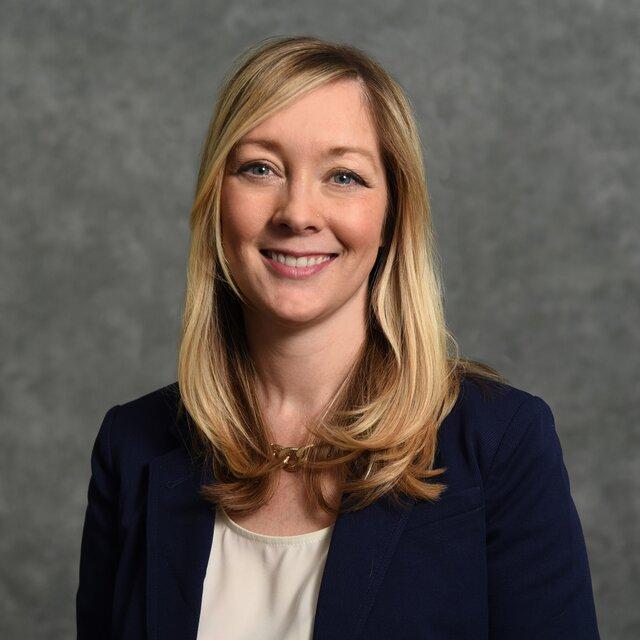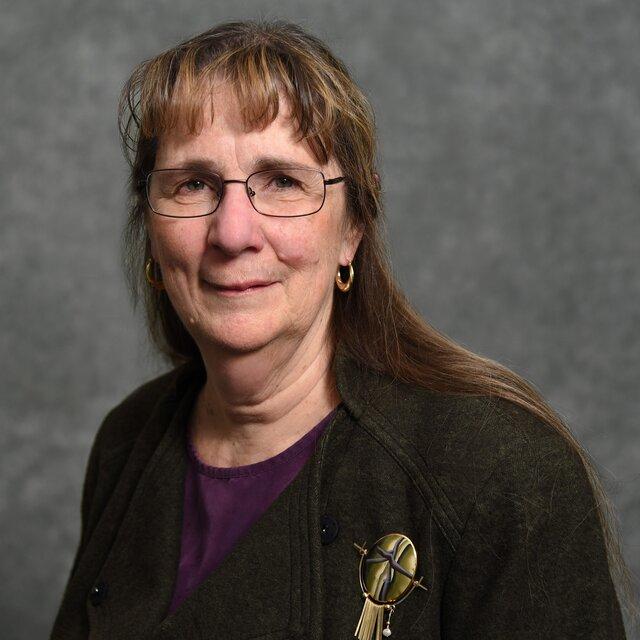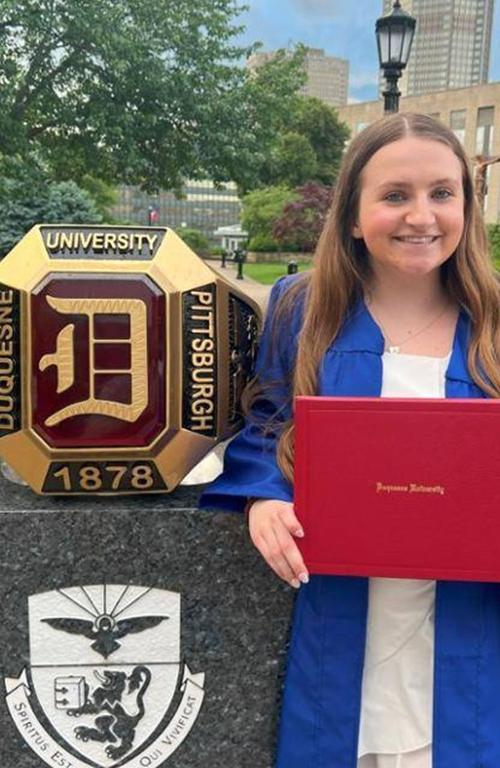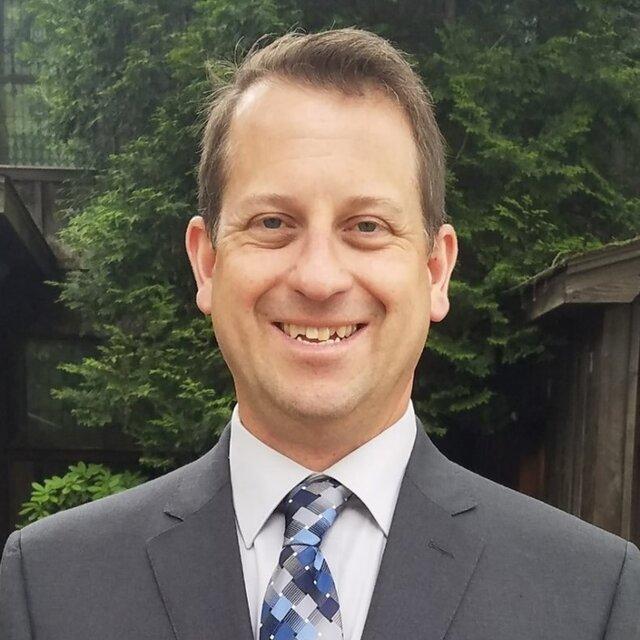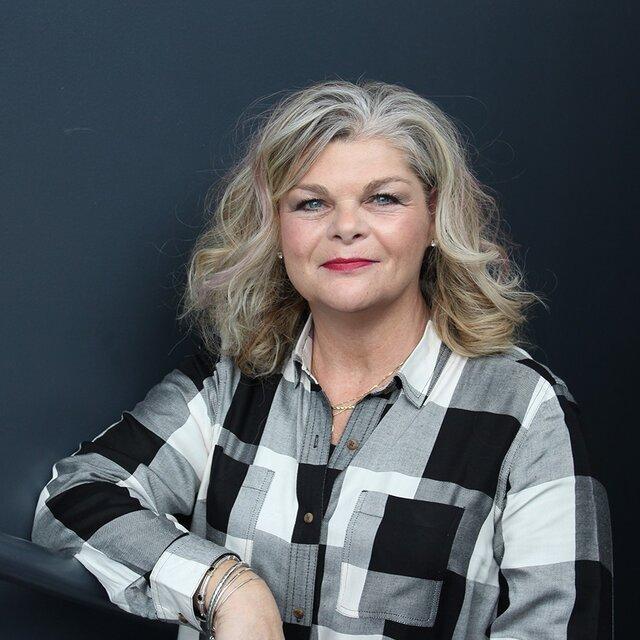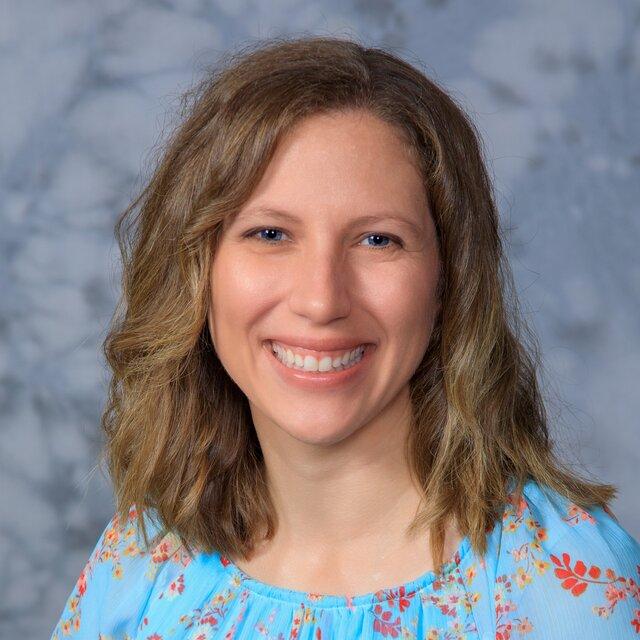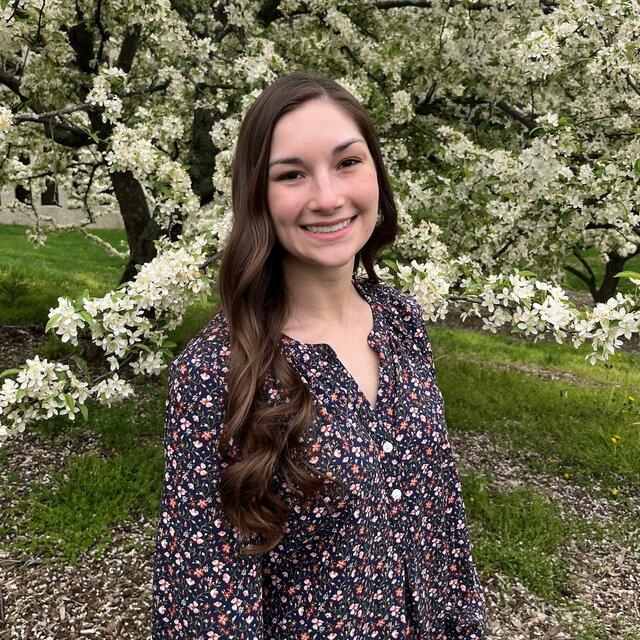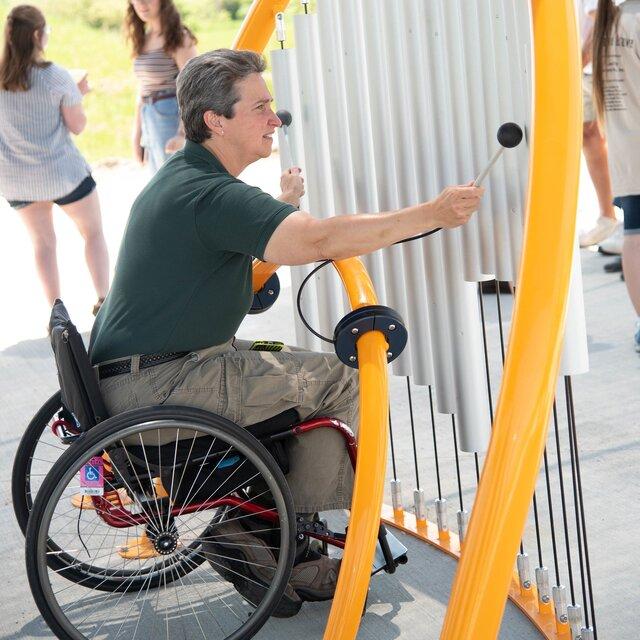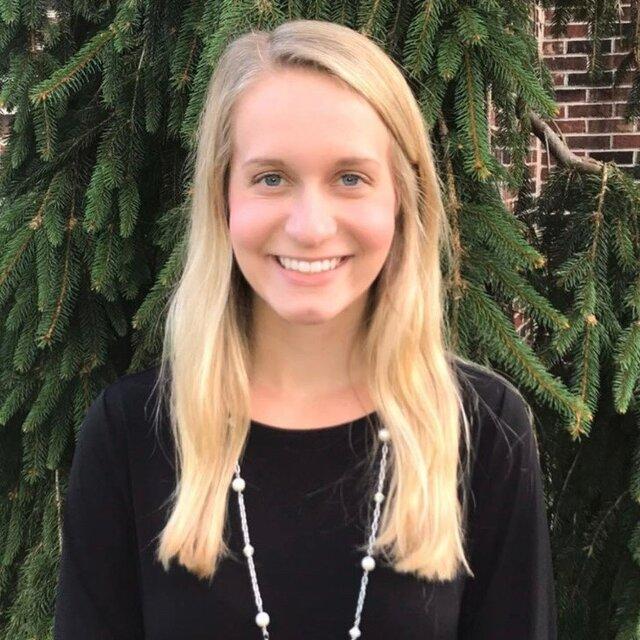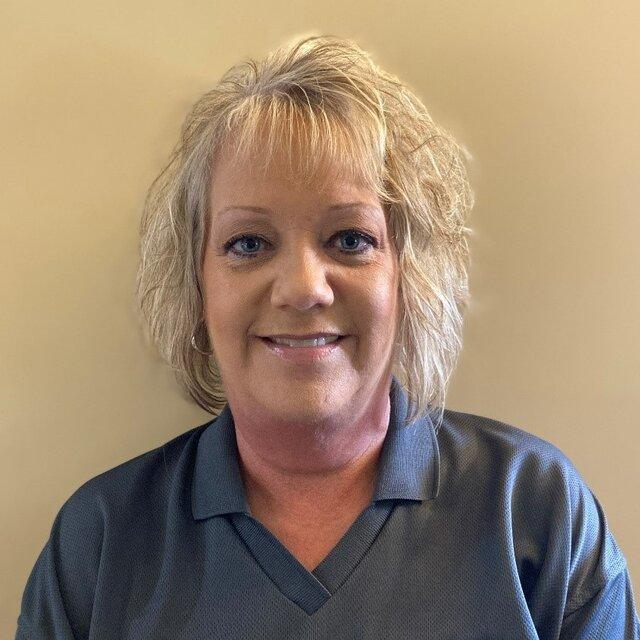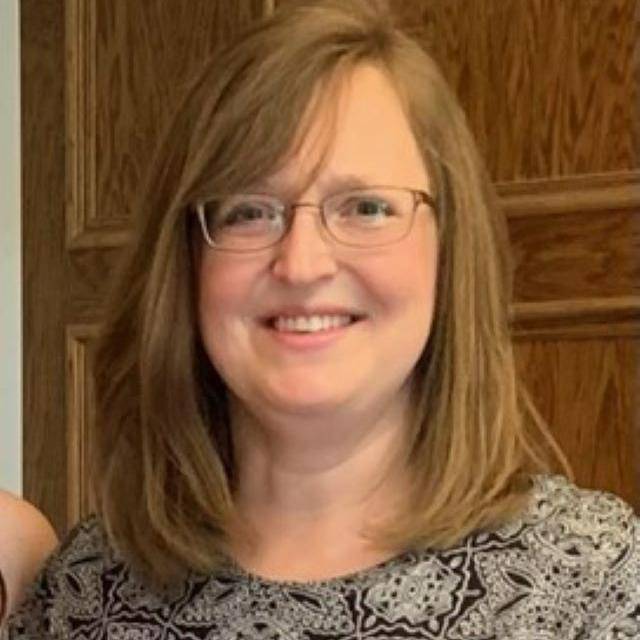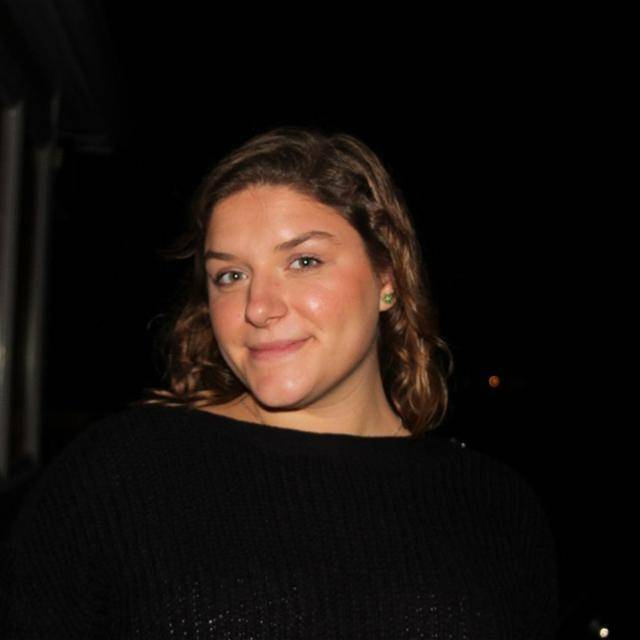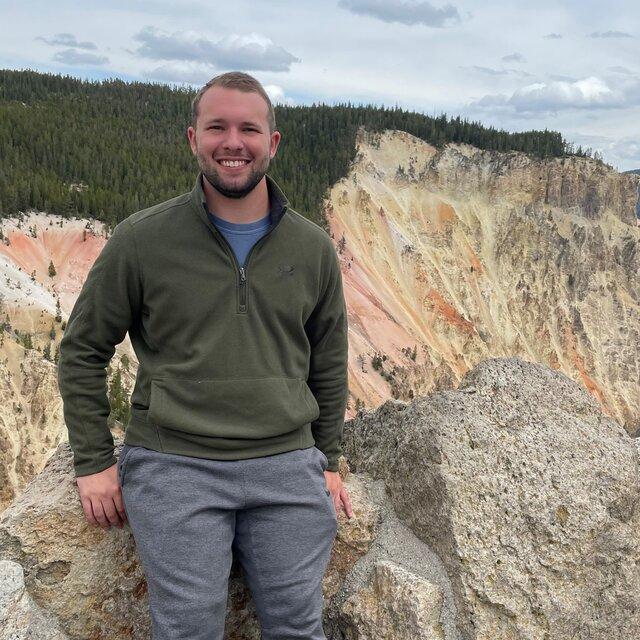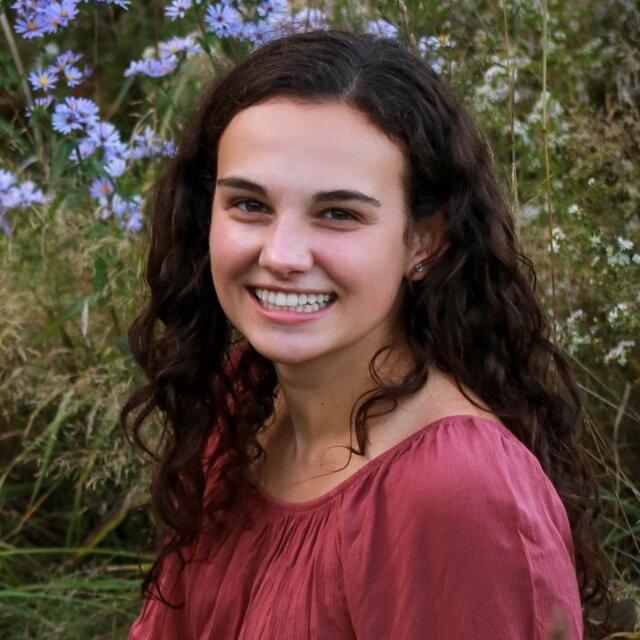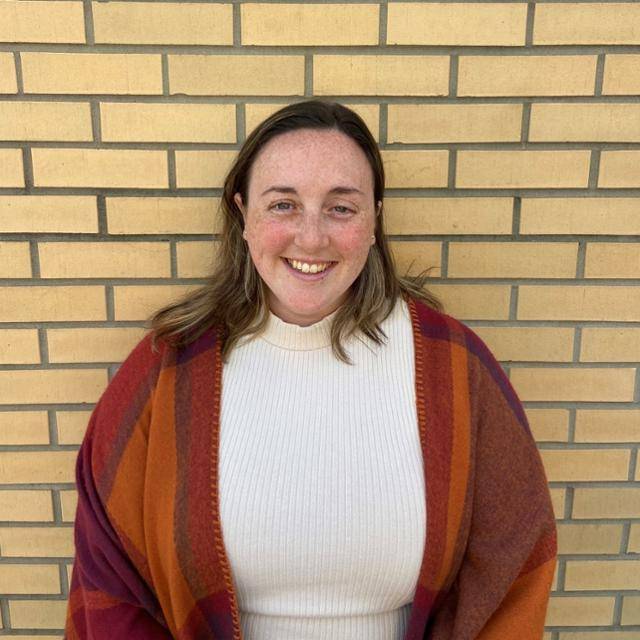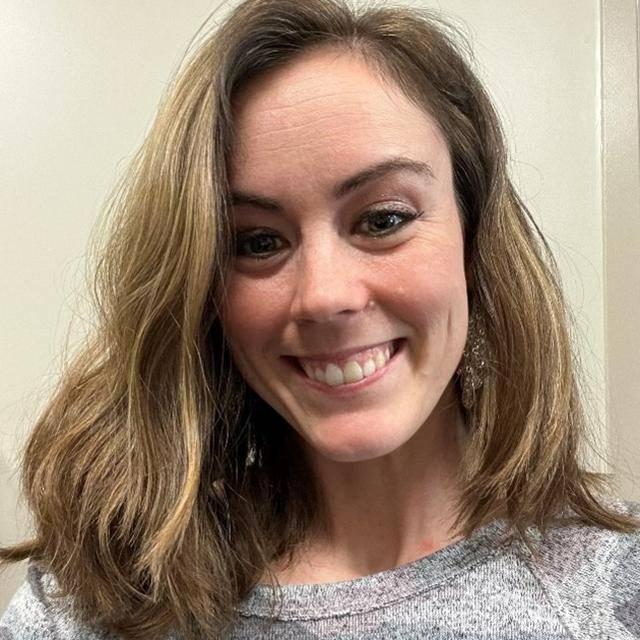Occupational Therapy
Occupational therapists are experts in doing. We prescribe therapeutic occupations, including everyday life activities to support a person's performance and function in the multiple life roles they engage in at home, school, work, and community environments. Occupational therapists are trained to address physical, cognitive, psychosocial, sensory-perceptual, and other aspects of performance. Occupational therapy interventions can be designed to develop skills, prevent illness and promote health and wellness. Interventions can also rehabilitate when an illness, injury or disease results in impairment, disability, activity limitation, or a restriction in a person's ability to participate in their daily occupations. Occupational therapists work with people of all ages and ability levels in many settings. Occupational therapy services may be provided in individual or group sessions, or on a broader scale at the system or population level.
The Department of Occupational Therapy at Duquesne University has a 27-year history of preparing practice scholars. The occupational therapy faculty are excellent teachers and scholars. Collectively, our teaching philosophy emphasizes active and transformative learning experiences. Community engaged learning and a wide array of excellent clinical fieldwork and doctoral experiential placements are standard teaching practices in our program and students know that they will be expected to immediately transform classroom learning into practice competencies. Our programs equip graduates who exhibit competencies as a generalist as well as in depth knowledge and skills to lead in practice and professional settings.
Program Information
Duquesne University's Occupational Therapy program prepares students to be skilled and compassionate practitioners, improving lives through meaningful interventions.
Program Type
Major
Degree
Bachelor's, Master's, Doctorate
Duration
Masters: 4.5 years, Doctorate: 5.5 years
Required Credit Hours
Masters: 156, Doctorate: 183
Modality
In-Person
Meet the OT Faculty
Occupational Therapy Student Testimonials
More in this program
Admission Pathways
Duquesne offers multiple admission pathways to earn your occupational therapy degree. The majority of our students begin their OT journey with us as freshmen, however, there is always room for transfer or post-baccalaureate students to join along the way!
Our accelerated pathways to the MSOT and OTD degrees provide you with a B.S. in Health Sciences after 4 years of full-time study.
If you chose the MSOT pathway, you will receive your M.S. degree after an additional 9 months of full-time, post-baccalaureate study.
If you chose the OTD pathway, you will receive your OTD after an additional 19 months of full-time, post-baccalaureate study. Students who pursue the OTD program do not earn a Master's Degree.
All freshmen admitted to Duquesne University's Occupational Therapy program enter the Master's of Occupational Therapy degree tract. In the Fall of the 4th year, students are given the option to declare their intent to earn an Occupational Therapy Doctorate. No additional application to enter the professional Phase for either degree is required for students who have declared occupational therapy as their major. Students in the accelerated programs who achieve a a ‘C' or better in all courses and a 3.0 cumulative GPA in the math and science courses by the end of the pre-professional Phase are guaranteed a place in the professional Phase of the occupational therapy curriculum beginning in January of the third year of study.
Find out more information about the freshmen admission pathwayOur accelerated pathways to the MSOT and OTD degrees provide you with a B.S. in Health Sciences after 4 years of full-time study.
If you chose the MSOT pathway, you will receive your M.S. degree after an additional 9 months of full-time, post-baccalaureate study.
If you chose the OTD pathway, you will receive your OTD after an additional 19 months
of full-time, post-baccalaureate study. Students who pursue the OTD program do not earn a Master's Degree.
If you are interested in applying as a transfer student and have not earned your baccalaureate,
please visit the Rangos School of Health Sciences transfer page. Please be advised that space in our program is extremely limited and in most semesters
we do not offer admission to transfer students. Prospective transfer students must
also have a minimum GPA of at least a 3.0, a composite math and verbal SAT score
of at least 1,170; or a composite ACT score of at least 24.
Our MSOT and OTD programs afford post-baccalaureate students the opportunity to jumpstart their program with prerequisites and foundational courses in the Rangos School of Health Sciences beginning in the Fall. Following that semester, students immediately articulate into the occupational therapy program in the Spring.
Please note, the overwhelming majority of our students enter our program as freshmen; however, we do accept a few transfer and post-baccalaureate students via OTCAS each year as space allows. The post-baccalaureate programs are rolling admission - we accept qualified applicants throughout the year, and until the class is filled. The sooner you apply, the better your chances will be of gaining admission. Only complete applications can be reviewed. We seek applicants who have demonstrated strong academic performance, active engagement in their community, and a solid record of servant leadership.
It is recommended that you submit your application by our priority deadline of June 30 each year. After that, applications will be reviewed on a case-by-case basis, based upon availability.
Find out more about the post-baccalaureate admission pathwayOur Mission, Philosophy, and Curriculum Design
It is our mission to:
Our three pedagogical approaches serve as the foundation for the department's philosophy and curriculum design:
Engaged learning, transformative learning and professional identify formation. A variety of interactive teaching methods are utilized including active learning approaches, self-reflection, interprofessional activities, community engaged learning, and experiential learning. Alongside structured faculty mentorship, students are expected to be intrinsically motivated acting as agents of their own learning and professional identity development through full engagement in the curriculum. These core pedagogical approaches of the Department of Occupational Therapy guide key instructional practices throughout our curriculum. These include:
- an intentional use of engaged, active learning educational pedagogies that embeds learning in context and seeks to establish opportunities for transformative learning experiences that promote critical thinking and reflection.
- concentration on professional identity formation as a practice scholar with the values, ethics, and professional behaviors associated with being an occupational therapist.
- a graded developmental approach to acquiring the knowledge, skills and attitudes to be a practice scholar who reflects on and engages in the scholarly application of occupational therapy and has a skill set to deliver person-centered, evidence-based occupational therapy.
- a central focus on occupation, on humans as occupational beings, and on the complex processes by which people find meaning and health through the interactive person-environment process of ʻdoingʼ or engagement in occupations.
- a comprehensive understanding of both personal factors and context or environmental influences on occupational performance and function in the areas of occupation.
The Department of Occupational Therapy designed a schematic using a "bridge" to illustrate the curriculum design, pedagogical approaches and curricular threads of our programs.
Our practice-scholar initiative and outcomes are demonstrating an energizing, leading force that bridges practice, education and research agendas. Given that Duquesne University is in a region with over 2,000 bridges more than 8 feet long, it is a symbol that fits our environmental context. The symbolic representation of a bridge is an effect way to signify how the components of our curriculum work together to create entry-level professionals in occupational therapy. Further, the symbolism of the bridge also represents an important goal of our curriculum: "to bridge the gap between education, practice and research."
The curriculum is designed to ensure that students develop their professional philosophy and requisite practice knowledge, skills and attitudes to enter practice in the profession of occupational therapy. Students in the MSOT program are prepared as generalists, while students in the OTD program develop in-depth knowledge and skills, which may allow the pursuit of advanced roles or future specialization in practice.
This curriculum is sequenced to challenge our students to integrate knowledge and skills from the pre-professional Phase into the professional then advanced profession Phases. The sequence for the curriculum is organized into six major curricular threads that reflect the "pillars" of our curriculum design.
- Practice Foundations
- Person-Occupation-Environment Interaction and Performance Across the Life-Span
- Health Care Delivery Systems and Equitable Population-Focused Services
- Practice-Scholarship
- Community Engaged Learning, Fieldwork Education and Doctoral Capstone Experience
- Servant Leadership, Advocacy and Occupational Justice.
Practice Foundations
The curriculum is designed to provide students with a strong foundation across three key areas 1) human science, 2) profession knowledge, and 3) professional skills. For example, students complete rigorous coursework in anatomy, neuroanatomy, kinesiology and clinical conditions to support their understanding of human engagement and the impact of function and dysfunction on human occupation. In order to introduce students to the profession’s knowledge, they explore the history and current structure, organization and vision of the profession. Students are also introduced to occupational science concepts and learn to view the human developmental continuum through an occupational lens. Finally, students are introduced to key professional skills including group and interpersonal dynamics, activity analysis, professional information literacy and occupational performance evaluation.
Discover the connection between this curriculum thread and the overall design in the
table below.
| Practice Foundations | ||
|---|---|---|
| Curriculum Thread/Course Title | Course #/Credits | Phase |
| Introduction to OT and Information Literacy | OCCT 150 (2) | Pre-professional |
| Anatomy & Lab | HLTS 315/L (5) | Pre-professional |
| Foundations and Concepts of Occupational Therapy | OCCT 305 (3) | Pre-professional |
| Occupational Performance Throughout the Lifespan | OCCT 310 (3) | Pre-professional |
| Fundamentals of Practice | OCCT 416 (3) | Pre-professional |
| Neuroscience | HLTS 503 (4) | Professional |
| Occupational Performance Evaluation | OCCT 535 (3) | Professional |
| Human Motion and Movement & Lab | OCCT 537/L (4) | Professional |
| Medical Conditions in OT | OCCT 548 (3) | Professional |
| Humans, Groups & Occupations | OCCT 518 (3) | Professional |
Person-Occupation-Environment Interaction and Performance Across theLife-Span
A guiding component of the Department of Occupational Therapy's curriculum philosophy is that occupational performance is developed and enhanced by treating the "whole person" and attending to physical, psychological, social and cultural issues as influenced by the environment. Our students are trained to recognize occupation as the critical link between the person and their environment and to appreciate the impact of personal (e.g., spiritual, cultural, physical) and environmental (e.g., social, physical, political) influences on occupational function and performance. Our consistent focus on person-environment interaction as the dynamic process whereby an individual has the potential to influence their environment, and vice versa through the use of occupation and engagement in occupational roles is integrated throughout the curriculum. This focus on occupation and occupational performance as an integrated and consistent theme in the curriculum ensures the graduates develop the capacity to critically examine the occupations people perform and enables them to use occupation as the medium to assist people to live their lives to the fullest extent possible. Occupational science, occupation-based practice models for related occupational performance and the remediation, compensation and adaptation of occupational performance are applied. Foundational client factor-oriented coursework is transformed into exploring the client’s performance skills and activity demands found in addressing areas of occupation. The information is organized into biomechanical, psychological, neuromotor, sensory, cognitive and perceptual processes which are addressed in a life-span perspective. Students learn specific approaches to addressing problems in performing occupations within various contexts. Community engaged learning, fieldwork education and the doctoral capstone experience provide opportunities for students to apply this academic knowledge, skills and attitudes in various contexts and to build the clinical competencies required of an entry-level practitioner.
Discover the connection between this curriculum thread and the overall design in the table below.
| Person-Occupation-Environment Interaction & Performance Across The Life-Span | ||
|---|---|---|
| Curriculum Thread/Course Title | Course #/Credits | Phase |
| Foundations and Concepts of Occupational Therapy | OCCT 305 (3) | Pre-professional |
| Occupational Performance Throughout the Lifespan | OCCT 310 (3) | Pre-professional |
| Fundamentals of Practice | OCCT 416 (3) | Pre-professional |
| Neurosensorimotor & Function & Lab I | OCCT 519/L (4) | Professional |
| Neurosensorimotor Function & Lab II | OCCT 520/L (4) | Professional |
| Intervention Seminar & Lab | OCCT 522 (3) | Professional |
| Psychosocial Function & Lab | OCCT 525/L (4) | Professional |
| Biomechanical Function & Lab | OCCT 530/L(4) | Professional |
| Occupational Performance Perspectives & Lab | OCCT 545/L (3) | Professional |
| Community and Population Health | OCCT 560 (2) | Professional |
| Instructional Learning Theory and Technology I | OCCT 650 (1) | Advanced Professional |
Health Care Delivery Systems and Equitable Population-Focused Services
The person-occupation-environment is isolated if curriculum content is too heavily weighted toward client-factors and performance skills. Equally important, occupational therapy practitioners must be skilled to recognize and address professional, social, cultural, political, legislative, and economic factors influencing and even directing, certain occupational performance options and occupational therapy service delivery models. Reflecting on the environment and context, both local and global, as significant influences on individual occupations including choices and options begins early in the curriculum and is reinforced repeatedly. The impact of contextual and environmental factors of practice and service delivery systems becomes a more defined focus as students move through the curriculum and increasingly participate in community engaged learning and Level I and Level II Fieldwork offers students the opportunities to refocus on factors impacting health care delivery systems from increasingly informed perspectives. Learning events later in our curriculum such as group and individual grant writing projects, community and program needs assessments, and the doctoral capstone are designed to support students’ abilities to integrate contemporary social, economic, political, geographic, and demographic factors that impact health care policies and advocate for occupational therapy services that address identified individual and population-based needs.
Discover the connection between this curriculum thread and the overall design in the table below.
|
Healthcare Delivery & Equitable Population Focused Services |
||
|---|---|---|
| Curriculum Thread/Course Title | Course #/Credits | Phase |
| Clinical Reasoning & FW I | OCCT 511 (3) | Professional |
| Clinical Reasoning & FW III | OCCT 512 (3) | Professional |
| Occupational Performance Perspectives & Lab | OCCT 545/L (3) | Professional |
| Environmental Adaptations & Rehabilitation Technology & Lab | OCCT 550/L (3) | Professional |
| Occupational Therapy Leadership and Administration | OCCT 561 (3) | Professional |
| Community and Population Programming | OCCT 565 (3) | Professional |
| Designing Effective Programs | OCCT 625 (3) | Advanced Professional |
Practice Scholarship
Our practice scholarship initiative began over 20 years ago and reflects an intentional approach to socialize Duquesne University graduates with a personal and professional identity that prioritizes and advocates for a scholarly approach to practice and which equips them with the knowledge and skill sets to produce scholarly products that enhance the practice of occupational therapy. Our scholarship sequence begins early in the curriculum when students learn to access, interpret and critique occupational therapy and related literature. An expectation to apply research literature in clinical decision-making is a consistent component of every intervention-focused course. Students continue to build on practice scholarship knowledge and skills as they study research processes, including project design and data analysis procedures in courses that emphasize quantitative and qualitative approaches to measurement. Many students embark on supervised research projects with a faculty mentor before they earn their baccalaureate degree and all students design and implement small scale studies in their research courses and more focused scholarly projects via their doctoral capstone.
Discover the connection between this curriculum thread and the overall design in the table below.
| Practice Scholarship | ||
|---|---|---|
| Curriculum Thread/Course Title | Course #/Credits | Phase |
| Evidence Based Practice | OCCT 541 (3) | Professional |
| Scholarship of Practice I | OCCT 533 (3) | Professional |
| Scholarship of Practice II | OCCT 532 (3) | Professional |
| Research Project I,II & III *optional | OCCT 610, 611, 612 ( 1 each ) | Professional |
| Applying Evidence to Practice I, II | OCCT 620/621 ( 3 credits total) | Advanced Professional |
| Practice Scholar Capstone I, II, III | OCCT 635/645/655 ( 5 total) | Advanced Professional |
Community Engaged Learning, Fieldwork Education and Doctoral Capstone Experience
Learning by doing is a central value of occupational therapy. Community engaged learning is a core component of engaged and transformative learning and is integrated in the pre-professional and professional Phases of the curriculum. For example, in pre-professional coursework, students may hone their ability to describe occupational therapy by creating occupational therapy video commercials and apply activity analysis principles by creating adaptive equipment for individuals who require adaptations to complete a meaningful occupation. In the professional Phase students learn to administer evaluations by administering them with clinical and non-clinical populations and learn the varied group leadership roles by designing and implementing groups with appropriate populations within the local community. Fieldwork and the doctoral capstone experience extend this learning by doing to an even fuller and more skilled extent. Level I Fieldwork is integral to our program’s curriculum design and integrated into our two clinical reasoning courses and a psychosocial intervention course. A two-semester role emerging community-based Level I FW sequence provides opportunities to learn more advanced needs assessment and program development. Level II Fieldwork provides students with advanced opportunities to integrate theory and skills learned in the classroom within the clinical and community settings. Site-specific assignments and reflective online assignments ensure congruence of the fieldwork experience with their academic preparation. The advanced practitioner Phase of the curriculum includes a 14-week doctoral capstone experience where students develop in-depth knowledge in a focused area of study that are integral to acquiring deeper-practice scholar competencies as reflected in the program’s curriculum design. The doctoral capstone experience and project directly connect occupational therapy practice with scholarship via the creation, implementation & evaluation of culminating projects. These continuous, sustained and in-depth hands on learning experiences are continuous, graded, and varied in depth and breadth and reflect our commitment to provide multiple avenues for students to practice the professional values, clinical reasoning, professional performance skills and application of professional knowledge consistent with the curriculum framework of our program.
Discover the connection between this curriculum thread and the overall design in the table below.
| Community Engaged Learning, Fieldwork Education and Doctoral Capstone | ||
|---|---|---|
| Curriculum Thread/Course Title | Course #/Credits | Phase |
| Professional Seminar I | OCCT 422 (3) | Pre-Professional |
| Clinical Reasoning & FW I | OCCT 511 (3) | Professional |
| Clinical Reasoning & FW III | OCCT 512 (3) | Professional |
| Psychosocial Function & Lab & FW II | OCCT 525/L (4) | Professional |
| FW IV and V (Level II FW) | OCCT 555-556 (12 credits total) | Professional |
| Professional Seminar II | OCCT 575 | Professional |
| Doctoral Capstone Seminar | OCCT 602 (1) | Professional |
| Doctoral Capstone Experience | OCCT 640, 642, 644 (10 total) | Advanced Professional |
Servant Leadership, Advocacy, and Occupational Justice:
A focus on servant leadership is a constant focus within our university and our curriculum places a heavy emphasis on leadership, specialty roles, and innovation and entrepreneurship focused on creating occupational therapy roles where none may currently exist or are emerging. The professional seminar / leadership course sequence exposes students to various leadership theories and roles in occupational therapy. Students engage in self-assessment to explore their own leadership style and design leadership development plans to guide their leadership trajectory from fieldwork to post-graduation. In later courses, students build upon their leadership knowledge and apply advanced theories of advocacy and ethics in healthcare in relation to current and future practice setting to develop advanced skills in advocacy and engaged citizenry. Local, national, and global health issues will be examined through an occupational justice framework in the context of social, cultural, genetic, economic, gender, and health-system influences on health and health policy As students complete their Level II Fieldwork experiences, they also participate in an online, seminar course focused on synthesizing their experiences from fieldwork in relation to curriculum objectives, sharing their experience from fieldwork with peers and practitioners and considering specialty and other roles beyond a generalist. Students create and disseminate evidenced-based, interactive educational sessions that are made available to local professionals, representing alumni, fieldwork educators and practitioners who are seeking accessible, quality professional development.
Discover the connection between this curriculum thread and the overall design in the table below.
| Servant Leadership, Advocacy and Occupational Justice | ||
|---|---|---|
| Curriculum Thread/Course Title | Course #/Credits | Phase |
| Professional Seminar I | OCCT 422 (3) | Pre-Professional |
| Occupational Therapy Leadership and Administration | OCCT 561 (3) | Professional |
| Professional Seminar II | OCCT 575 (3) | Professional |
| Instructional Learning Theory and Technology I/II | OCCT 650/651 (3 credits total) | Advanced Professional |
| Transformative Leadership | OCCT 660 (3) | Advanced Professional |
Curriculum
View Course Descriptions
-
5-year, entry-level professional program awarding a Bachelor of Science in Health Sciences followed by a Master of Science in Occupational Therapy. (B.S./MSOT)
-
2-year post-baccalaureate, professional program awarding a Master of Science in Occupational Therapy (MSOT)
-
6-year entry-level professional program awarding a Bachelor of Science in Health Sciences followed by an Occupational Therapy Doctorate degree. (B.S./OTD)
-
3-year post-baccalaureate, professional program, awarding an Occupational Therapy Doctorate degree. (OTD)
- BIOL 101/101L Into to Life Processes (4 credits)
- PSYC 101 Introduction to Psychology (3 credits)
- OCCT 150 Introduction to OT& Information Literacy (2 credits)
- BRDG 101 Writing Analysis (3 credits)
- BRDG 102 Writing & Literature (3 credits)
- BRDG 105 Intro to Ethical Thinking (3 credits)
- CLSX 122 Etymology of Scientific Terms (3 credits)
- EQ Essential Questions Seminar (3 credits)
- Cultural Fluency Competency (3 credits)
- PHIL/THEO Elective (3 credits)
- BIOL 207/208 Anatomy & Physiology I/Lab (3/1 credits)
- OCCT 205 The Physics of Therapy (1 credits)
- MATH 225 Introduction to Biostatistics (3 credits)
- OCCT 305 Foundations & Concepts of OT (3 credits)
- BIOL 209/210 Anatomy & Physiology II Lab (3/1 credits)
- OCCT 310 Occupational Performance Throughout the Lifespan (3 credits)
- MATH 335 Biostatistics II (3 credit)
- HCE/PHIL/THEO Health Care Ethics (3 credits)
- PHIL/THEO Elective (3 credits)
- HLTS 315/L Anatomy/Lab
- OCCT 416 Fundamental of Practice (3 credits)
- OCCT 422 Professional Seminar I (3 credits)
- ENGL 316W Healthcare & Literature or ENGL 302W Scientific Writing (3 credits)
- Elective (3 credits)
- Elective (3 credits)
- HLTS 305 Neuroscience (4 credits)
- OCCT 535 Occupational Performance Evaluation (3 credits)
- OCCT 537 Human Motion and Movement (4 credits)
- OCCT 541W Evidence Based Practice (3 credits)
- OCCT 518 Humans, Groups & Occupations (3 credits)
- OCCT 545 Occupational Performance Perspectives (3 credits)
- OCCT 548 Medical Conditions in OT (3 credits)
- OCCT 610W Research Project I - Prospectus (1 credit, optional)
- OCCT 511W Clinical Reasoning I & Fieldwork I & II (3 credits)
- OCCT 519 Neurological & Sensorimotor Function (4 credits)
- OCCT 530 Biomechanical Functions (4 credits)
- OCCT 531 Scholarship of Practice (3 credits)
- OCCT 560 Community & Population Health (2 credits)
- OCCT 611W Research Project II- Engagement (1 credit, optional)
- OCCT 561 OT Leadership & Admin Fieldwork III (3 credits)
- OCCT 520 Neurological & Sensorimotor Function II (4 credits)
- OCCT 525 Psychosocial Function & Fieldwork II (4 credits)
- OCCT 532W Scholarship of Practice II (2 credits)
- OCCT 550 Environmental Adapt & Rehab Technology (3 credit)
- OCCT 612W Research Project III - Dissemination (1 credit, optional)
- OCCT 522 Intervention Seminar (3 credits)
- OCCT 512W Clinical Reasoning II (3 credits)
- OCCT 565 Community & Population Programming (3 credits)
- OCCT 555 Fieldwork IV (6 credits)
- OCCT 575 Professional Seminar II (3 credits) *
- OCCT 556 Fieldwork V (6 credits)
- OCCT 620 Applying Evidence to Practice I (2 credits) *
- OCCT 625 Designing Effective Programs (3 credits) *
- OCCT 635 Practice Scholar Capstone Project I (2 credits) *
- OCCT 621 Applying Evident to Practice II (1 credit) *
- OCCT 640 Doctoral Capstone Experience I (2 credits) *
- OCCT 642 Doctoral Capstone Experience II (6 credits)
- OCCT 645 Practice Scholar Capstone Project II (1 credit) *
- OCCT 650 Instructional Learning Theory/Technology (1 credit) *
- OCCT 644 Doctoral Capstone Experience III (2 credits) *
- OCCT 660 Transformative Leadership (3 credits) *
- OCCT 655 Practice Scholar Project III (2 credits) *
- OCCT 651 Instructional Learning Theory/ Technology II (2 credits) *
Learning Outcomes
- Achieve generalist, entry-level practice competencies via a broad exposure to practice settings, delivery models and system
- Create evidence and disseminate the acquired knowledge regarding ‘best practices' to benefit their practice setting
- Demonstrate a strong worldly professional identity through analyzing the relationship between global health and development for individuals, communities, and populations
- Synthesize information, problem solve and use advanced clinical and professional reasoning to select an appropriate theoretical basis, assessment and/or intervention strategies for individual, groups and populations across the lifespan and in diverse practice settings
- Demonstrate person-centered approaches to meet occupational performance and participation needs of individuals, groups, and populations
- Demonstrate skills to use and create evidence to support their practice setting and evidence-based practices
Meet the DU OT Advisory Board
Contact us!
Still have questions? Reach out to one of our administrative assistants for answers!



